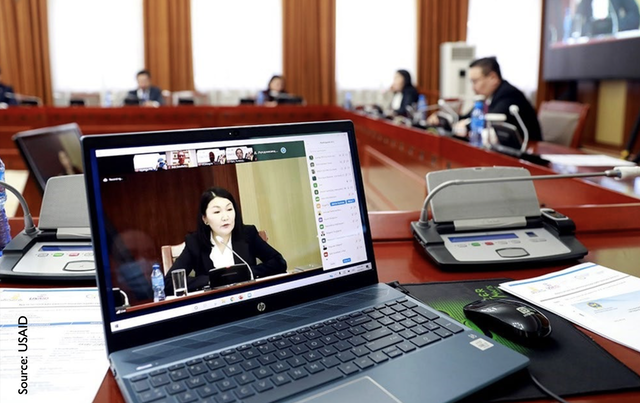
Why Governments Deploy ICT4D Projects
Governments use digital services to increase constituent services by improving efficiency, communication, accessibility, transparency, decision-making, and innovation. This strategic integration of e-Government technology helps governments enhance their operations and better serve their constituents.
Governments use e-government programs and digital services to increase constituent services for several reasons:
- Improved efficiency and productivity: E-government programs can streamline administrative processes, reduce paperwork, and save time and money, ultimately leading to more efficient and productive government operations.
- Better communication and accessibility: E-government programs facilitate better communication between governments and citizens, creating a more open market and a stronger economy. By digitizing government services and information, e-government can increase accessibility to public services and improve the overall customer experience.
- Increased transparency and accountability: E-government can improve government transparency by allowing the public to be informed about what the government is doing. This creates a more informed and engaged citizenry, which can lead to increased trust in government.
- Enhanced decision-making and resource allocation: By leveraging data and information collected through e-government programs, governments can make more informed decisions and allocate resources more effectively, resulting in better program outcomes and better support for constituents.
- Improved constituent experience: E-government programs can provide personalized experiences to constituents by collecting, unifying, and activating data to draw meaningful insights and provide proactive solutions to their needs.
- Promotion of innovation and collaboration: By utilizing e-government programs, governments can foster collaboration and promote innovation among stakeholders, leading to the development of more innovative and sustainable solutions.
Apply Now: $20,000 for Digital Ideas to Reduce Government Corruption
Provision of public services in less-developed countries is rife with corruption problems. Corruption at the local level is particularly problematic and directly...
USAID Digital Development Future View with Christopher Burns, Chief Digital Development Officer
In a recent episode of the “Building the Future” podcast, Christopher Burns, Chief Digital Development Officer at USAID, joined Romina Bandura of...
Introducing the United States AI in Global Development Playbook
The world stands at a precarious moment as we work towards shared prosperity. The global community is on track to meet just 17% of the United Nations Sustainable...
7 Free WiFi Initiatives in Nigeria for Public Internet Access
Digital technology offers Nigeria the opportunity to grow and diversify its economy from the overdependence on oil & gas export proceeds. The Nigerian government...
How US State Department Uses AI Strategically in Modern Diplomacy
Artificial intelligence is a powerful tool in diplomatic circles, promising to reshape how the U.S. Department of State approaches global challenges.
In a recent...
7 Political Economy Aspects of Artificial Intelligence in African Countries
“Political economy” has two senses. It can refer to a particular political economy of a country, industry or technology. It also refers to the kind of analysis...
Introducing USAID Digital Policy: International Development is Digital
Last week, Administrator Samantha Power reiterated USAID’s commitment to a model of development that advances open, inclusive, secure, and rights-respecting...
Apply Now: $3 Million to Build Responsible Rights-Respecting AI Policy Approaches
Calibrated cyber and digital policies help form the backbone of our deeply interconnected world, are vital to U.S. national and economic security, and are required...
6 Insights on African National Data Protection and Security Practices
The Africa Privacy Report encapsulates the outcomes of research endeavors conducted by the Lawyers Hub, focusing on the dynamic landscape of privacy and data protection...
How African Countries Govern National Artificial Intelligence Solutions
Artificial intelligence is often posited as a solution to the myriad difficulties faced on the African continent. AI discourse is littered with articles that proclaim...











